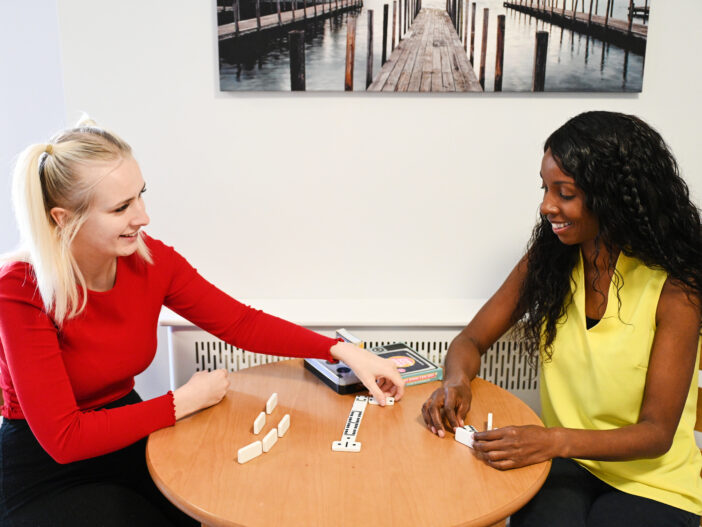How our holistic approach to mental health enables positive outcomes
Jo Ward is our Clinical Lead for Mental Health here at Voyage Care. Below, Jo shares her thoughts on mental health, the support we can provide, and how a holistic approach enables positive outcomes. This includes the three important elements needed to provide high-quality support for people with mental health needs.
I believe that providing quality mental health support requires a well-rounded approach that considers many influencing factors. You need to work with the person needing support, learn what recovery looks like for them, and facilitate an approach that works for them. Adopting a holistic approach means you truly understand what the unique recovery outcomes are for each person and make effective plans with realistic steps to help them get there. As part of our holistic approach, I believe three key factors that support this are…
1: Creating a safe environment physically and psychologically
Creating a safe space is a simple concept but has a huge impact on the people we support. When we talk about creating a safe space, we consider both physical and psychological elements . This includes each person’s lived experience, what feels safe to them and what might be a trigger. For example, flashing lights outside someone’s home could be a negative trigger because it links to an incident in their past. So, when creating a safe space, we ensure we understand what the triggers are and how to avoid them.
Triggers are formed from traumatic events and can cause high anxiety, also known as long-term post-traumatic stress disorder (PTSD). I firmly believe life is an accumulation of experiences and to this end I find it helpful to consider not what is ‘wrong’ with someone, but what has happened to them.
A safe space can result in a warm, calming and open environment where people feel able to share and discuss their thoughts. When considering the psychological aspect of a safe environment, we look to avoid key terms or language that might trigger someone. In the same way smells can be associated with a specific experience; a phrase or significant dates can also remind somebody of a memory. Our teams are trained to recognise how symptoms of mental illnesses, such as schizophrenia, bipolar disorder, anxiety and depression, personality disorder and PTSD can impact a person’s functioning and behaviour. This could be through a written records that details all significant information about a person we support, known as a personal profile, or specific training around emotional triggers and how to support the person to develop effective coping strategies. Our aim is to achieve inclusivity and work collaboratively with the people we support.
2: Promoting Trust
To provide quality support, we must build a positive relationship with the individual that is built on trust. We know that trust is earnt, and can take time, so right from the beginning we focus on how we demonstrate that we respect the person, recognise and validate their support needs. This includes actively listening to what they want to achieve and how we can make that happen together. It also includes encouraging them to share their feelings and never being dismissive of this.
Personally, I treat each and every person as if they may have experienced trauma in their past. This is because not everybody is comfortable talking about their personal history. In doing this, we can help to shift the stigma around mental health because we do not rely upon labels to define people’s needs.. Some of the stereotypes that exist for people with mental health needs can make it harder to build trust, which is why educating our team and the people around us is so important. The stigma against people with a mental illness can be a barrier to people seeking help.
Ultimately, the more we talk about mental health, the more we can support others by creating an open environment for discussion. Discussion also supports trust within relationships and makes asking for support feel less daunting.
3: Supporting choice, empowerment and autonomy
Finally, supporting choice and empowering people is key to enabling positive outcomes. Our teams should be a pillar of support rather than an authority figure. We’re there to guide individuals to make their own choices, which can boost confidence and morale. One way this can be implemented is helping an individual set personal goals that are important to them, but also seeking to understand why they are important to them. This again links to empowerment and puts the needs of the individual at the heart of all we do.
Supporting choice reinforces positive thinking and when someone feels empowered, they have the tools to build their confidence and develop.
Find out more
We recognise that each person’s journey with mental health is unique to them. Therefore, it’s so important to take a holistic approach when providing support and place the individual at the centre of what we do.
Are you a loved one or client looking for support? Enquire now through our enquiry form to find out more about mental health support in your area.

 Views
Views 

